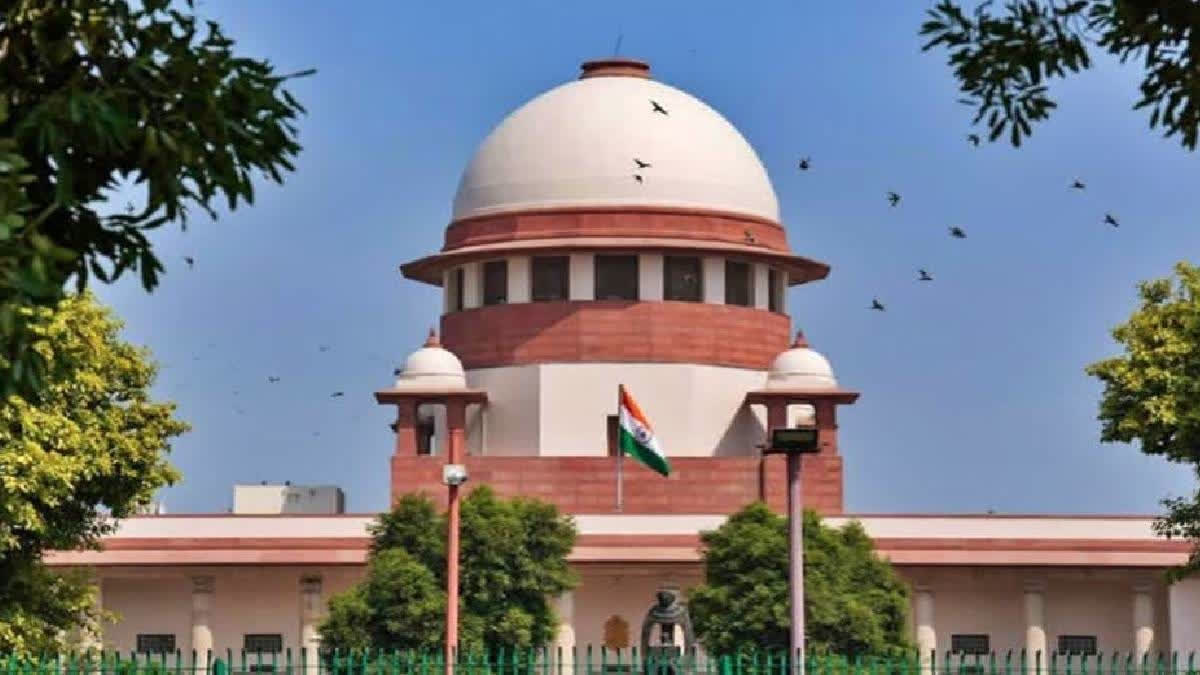New Delhi: The Supreme Court Wednesday said it will review the 1998 PV Narasimha Rao judgment (JMM bribery case), which granted immunity to MPs/MLAs from prosecution if they accepted bribery and voted/asked a question in a particular manner. A five-judge constitution bench headed by Chief Justice of India D Y Chandrachud said this judgment will be reviewed by a 7-judge bench.
The bench, also comprising justices A S Bopanna, M M Sundresh, J B Pardiwala, and Manoj Misra, noted that the members of the state legislature must be free to express their views on the floor of the house without fear of consequences. “Prima facie, at this stage, we are of the view that correctness of the view of the majority in P V Narasimha Rao should be considered by a larger bench of 7-judges….”.
The top court said, “It must be noted that the purpose of Article 105(2) and Article 194 (2) is to ensure that the members of the Parliament and state legislatures are able to discharge their duties in an atmosphere of freedom without fear of consequences which may follow, for the manner in which they speak or exercise their right to vote on the floor of the House”.
The top court said the object clearly is not to set apart the members of the legislature as persons who wield higher privileges in terms of immunity from the general criminal law of the land, which citizens of the land do not possess.
The top court observed that in the course of the judgment in the PV Narasimha Rao, Justice SC Agarwal noted that if the construction in support of the immunity under Article 105(2) for a bribe taker were to be accepted, a member would be liable to be prosecuted on a charge for bribery if he accepts bribe for not speaking or not voting for a matter under consideration before the House. The top court said but he would enjoy immunity from prosecution for such a charge if he accepts a bribe for speaking or giving his vote in Parliament in a particular manner.
The top court said the judgment of Justice Agarwal states that the offence is complete with the acceptance of the money or agreement to accept money being concluded and is not dependent on the performance of the illegal promise by the receiver. It further added that this aspect had not been dealt with in the judgment of the majority.
The top court said: "For the above reasons, we're of the view that the correctness of the view of the majority in Narasimha Rao shall be considered by a larger bench of 7 judges…..”.
The constitution bench headed by CJI was hearing a plea by Sita Soren against the Union of India, which involved the question whether an MP or MLA can claim immunity from criminal prosecution for taking a bribe to make a speech or vote in the Legislative Assembly or Parliament.
A bench headed by then CJI Ranjan Gogoi in 2019, had referred to a larger bench the crucial question, noting it had “wide ramification” and was of “substantial public importance”. The three-judge bench had then said it would revisit its 24-year-old verdict in the sensational Jharkhand Mukti Morcha (JMM) bribery case on an appeal filed by Sita Soren, a JMM MLA from Jama constituency in Jharkhand.
In 1998, a five-judge constitution bench in the PV Narasimha Rao versus CBI case held that parliamentarians had immunity under the Constitution against criminal prosecution for any speech made and the vote cast inside the House.
Attorney General (AG) R Venkataramani, representing the Centre, opposed reconsideration of the 1998 judgment. Senior advocate Raju Ramachandran, representing Sita Soren, stressed that the case was a regular criminal appeal which involves the question of application of the PV Narasimha Rao case verdict. However, the apex court said it would set up a seven-judge bench to examine the matter afresh and “straighten” the law and emphasized that it is an important issue having a significant bearing on the “morality of polity”.
The AG contended that Soren had received a bribe for the no-confidence motion (for voting against it) in the Parliament and there is nothing in the case to do with the business of the House.
Senior advocate PS Patwalia, amicus curiae in the matter, said the matter be referred to a larger bench. Senior advocate Gopal Sankaranarayanan, representing one of the intervenors, agreed with the amicus curiae.
Soren moved the apex court challenging the Jharkhand High Court order passed in February 2014, declining to quash a criminal case against her for allegedly taking a bribe to vote for a particular candidate in the 2012 Rajya Sabha elections.
The sensational JMM bribery case involved Shibu Soren, a former Jharkhand Chief Minister and ex-union minister, and four other party MPs who had accepted bribes to vote against the no-confidence motion against the then P V Narasimha Rao government in 1993.
Also read: SC to begin hearing on pleas challenging Section 6A of Citizenship Act on October 17


